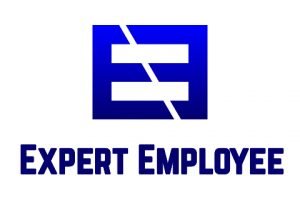This post contains affiliate links.
Leaving your current job is a mixture of excitement and dread. You look forward to the challenge and opportunity of the future, but know that you will miss coworkers and the familiarity of your current job – even if you didn’t enjoy your responsibilities or your boss. When you are escaping a bad situation it can be tempting to vent at your exit interview and finally tell the company all the things that are broken and name names.
At your exit interview, resist the urge to put your previous boss and employer on blast, even when you never want to come back. Respond with neutral comments or simply don’t discuss problem issues. Maintain your professionalism and keep your reputation intact.

When the exit interview is run by Human Resources the company is unlikely to make changes based on the feedback (source) and you never know when you need references or might run into these same people later in your career.
Remember that even in the litigious climate today, most background checks will confirm your job title, dates of employment, and the question “Are they eligible for rehire?“. Providing a laundry list of complaints and problems at your exit interview may be considered evidence of a disgruntled employee and inappropriate behavior. Remember that how you leave can affect your future.
The Exit Interview Process
Employers fall into two main categories for how they complete their exit interviews. For employees that they want to retain, expect Human Resources to schedule an interview soon after you submit your resignation. The most common scenario is for your exit interview to be on your last day of work, almost exclusively so if your company has a standing policy against counter-offers.
Companies use many methods to conduct their exit interviews but the most common is a face-to-face discussion. Other companies use video interviews, questionnaires, or online video surveys.
In all cases, the exit interview is designed to get candid feedback about the organization. Seemingly they want to know why you are leaving so they can prevent a larger exodus and retain critical employees or uncover deeper issues. In reality there is another reason why employers conduct exit interviews – they want to determine if you intend to sue the company.
Waiting until your exit interview to report harassment, illegal activity, or other actionable violations can actually work against you. Late reporting is better than never reporting, but the timing reduces your credibility and will be used by the company in their defense against any claims that may result.
Can I Decline My Exit Interview?
Except in rare cases when it is specified in the terms and conditions of your employment, you have no obligation to participate in your company’s exit interview. You do not owe them your parting observations and you can politely opt-out. Just be brief and to the point without a long excuse:
- Thank you for scheduling an exit interview, but I’ve already provided all the feedback I have to offer.
- I’m using this time to say goodbye to coworkers and wrap up my responsibilities for a smooth transition. I don’t have time for an exit interview right now.
- look forward to new challenges and opportunities.
However, if you decide to politely decline the exit interview then you need to make sure that HR completes the other parts of the offboarding process. The exit interview is normally combined with other elements, including an explanation of COBRA eligibility, reminders of your non-disclosure agreement terms, as well as final paycheck and PTO payout arrangements.
Can I Ask for an Exit Interview?
If nobody schedules an exit interview, you can request a meeting with someone in your leadership structure or with an HR representative. Before you do, consider what you hope to accomplish.
You may have the best of intentions to pull back the curtain on uncomfortable truths within the company. It is commendable that you really want to make a difference for the coworkers you are leaving behind. Remember that exit interviews are the norm, any company that doesn’t use them or ‘forgets’ to schedule yours is highly unlikely to do anything with your feedback. You can be right in principle but lose in politics.
Exit Interview Questions and Answers
Exit interviews can cover a lot of ground, but typically center around three main concepts: what contributed to your decision to leave, feedback about the company and your leadership team, and your suggestions for how the company can improve.
HR can be crafty and will manage the process to put you at ease. They get the conversation going with simple, seemingly safe questions before asking their most-important question “What caused you to start looking for another job in the first place?”.
| Questions About Your Motivation | Example Answers |
|---|---|
| What made you decide to leave? | It was a great opportunity that I couldn’t pass up. My new job is more aligned with my career goals. My new role has more opportunities to grow. |
| Where are you going? | I’m not going to a competitor but I would rather not say more. |
| What is your new job title and compensation? | That is private information. |
| How did you find your new position? | I wasn’t actively looking but a member of my professional network brought the opportunity to my attention. |
| What was the biggest factor that led you to accept the new position? | There wasn’t one factor more significant than the others, overall this is the right move for my career. |
| What did you like most about working here? Least? | I really appreciate all the opportunities and career growth during my time here. |
Keep your answers vague and practice diplomacy. A successful approach is to describe the aspects of your job that you did like or even make statements about how your new job is better (but do it without boasting). When nothing else seems to fit, you can always respond with “I don’t have anything to say on this issue”.
| Questions About The Company | Example Answers |
|---|---|
| Did you enjoy working with your manager? | My manager supported me in my role, but overall I have more to offer than what my responsibilities entailed. |
| What did you like/dislike about our company culture? | Our company values say we value our employees above all else, and while we’ve made good progress with work-from-home flexibility we have work to do with [insert social justice issue]. |
| Did you have the resources necessary to execute your responsibilities? | We have always understood the need to be efficient with budget and resources. Projects didn’t always start with enough staff or funding, but we made it work. |
| Do you have any concerns about our company that you will share with me? | I’m not sure, I haven’t really thought about it. |
| Questions About Suggestions For Improvement | Example Answers |
|---|---|
| What could we have done to keep you employed here? | I’ve been here for xx years and I have enjoyed my time here. With the right offer, I would strongly consider returning. |
| How can our leadership team be more effective? | There are many things that management does well, communication has always been strong for example. Continue to listen to the feedback from employees and take it seriously. |
| Would do your recommend to help us create a better workplace? | There is always room for improvement, more generous compensation is always appreciated. |
Should I Be Honest on My Exit Interview?
You have nothing to gain and plenty to lose by unloading a pile of grievances at the exit interview. People can be petty and it is easy to unintentionally burn bridges during the exit interview.

If you do decide to be brutally honest at your exit interview, bring specific examples with details and not just general statements. Always be calm, professional, and respectful – postpone the meeting if necessary. Limit your personal observations and opinions and use factual statements whenever possible. Constrain yourself to significant, meaningful issues; don’t make the mistake of airing petty complaints – this is not the time to bring up how your stapler constantly went missing.
Balance your critical statements with suggestions for improvement. Provide constructive feedback that will help if acted upon, but don’t let negative experiences turn your comments bitter and resentful.
Expert Tip: Research has shown the exit interview process is largely ineffective because employees distort their feedback. Leaving on good terms and not burning the bridge with their former employer far outweighs any benefit to employees at this stage.
Know that what you are saying is likely to be reported to your leadership team and company executives and is not confidential. HR may sanitize their documentation of certain information, but confidentially for former employees is usually not a priority. Assume that any people you mention during your venting will find out about the complaint and that it came from you.
What Not to Do or Say in an Exit Interview
Don’t Point Fingers: Unless you raised the issue through proper channels previously, the exit interview is not the place to point fingers. Its rude in general and will make you look petty.
Don’t Think You Are Irreplaceable: You may think that your department will fail without you, and it might, but most likely they will absorb the extra workload and carry on just fine.
Don’t Out Anyone Else: You may know about many people that are dissatisfied with their job and looking for the exit, but don’t talk about it at your exit interview. Be happy that you have made your escape and are leaving, but they are not (yet). Even when you intend to help someone with your comments, what you are really doing is putting them under a microscope that can have severe unintended consequences.
Don’t Gossip: Only deliver first-hand information in your discussion. Don’t mention rumors or try to get more information about conspiracy theories.
Don’t Curse or be Inappropriate: You want to leave with a good impression, not someone that went off at the exit interview. Just suck it up for a few more hours and you can let loose at the after-party. Don’t use the word ‘hate’ either, hurtful terms only make you look immature and are not appropriate in the workplace or your exit interview.
Don’t Brag About Your New Job or Employer: You should be excited about the future, but be humble during your exit interview and save the gloating.
Do Not Answer With ‘No Comment’: You don’t have to answer any question if you don’t want to, just say nothing in a way that doesn’t make it sound like you have been coached by a lawyer. Saying ‘no comment’ makes it seem like you are preparing to take legal action, ‘I hadn’t really thought about it’ has the same meaning in a non-threatening way.
How to Handle the Exit Interview From a Toxic Workplace or Horrible Boss
Don’t bad-mouth your company during the exit interview. They may have terrible rules & policies and ineffective managers that lead through fear. These issues are not your problem or concern any longer. Each boss you have will teach you something – some are constructive lessons and some are negative lessons that help you recognize situations to avoid in the future.
Exit interviews led by HR are assembled together to look for overall trends and delivered to company executives to digest and possibly take action on. In reality, when leaders are so disconnected from widespread problems they are unlikely to respond effectively. The only way a company culture makes meaningful change is when leaders are engaged with their employees, which makes exit interviews unnecessary.
Exit Interview Questions to Ask Your Employer
You may not think of the exit interview as a good setting for you to ask questions of your employer, but there are important topics to ask about during the offboarding process before you complete your separation.
- When can I expect my final paycheck and PTO payout? What are the amounts? Be sure to get an accounting of the money your employer owes you and the payment dates. If you have equity in the company make sure you understand what happens with your stock grants and what are the exercise requirements.
- Please provide a copy of any signed agreements that remain in effect after my employment ends, such as non-disclosure agreements (NDA), non-compete and/or non-solicitation agreements, etc. For technical and leadership roles, this request may be the most important of all the questions to get answered at your exit interview. You need to know the detailed terms of the agreements to make informed decisions going forward.
- What is the company policy on background/reference checks? What information will be provided? Am I eligible for rehire? Even if you have no plans to return, directly ask the HR representative if you are eligible for rehire because this is the piece of information that can profoundly affect future career options.
- May I have a copy of my employee file, please? No federal law requires employers to provide employees access to their own personnel file, but most states grant public employees the right to access the information and many states also have requirements for private companies. The requirements vary from state to state so use this link to see the detailed information for your location. Even if you are in a state without a statute, it doesn’t hurt to ask.
Some of the frequently recommended questions offer limited value but we cover each one in detail below.
- Will my feedback be anonymous? Even if HR attempts to keep your feedback anonymous (which they likely will not), the timing of your departure and the nature of the information you provide can make it trivial to connect the dots for anyone involved.
- What did I do well during my time here? What could I have done better? You are unlikely to get meaningful feedback during the exit interview itself. Human Resources will simply reference your previous evaluations and regurgitate the same comments if they even answer the questions. You are far better off asking this question to your boss before you leave because they may feel free to give more candid feedback. Also get input from your boss’s boss and other leaders and mentors in the organization that you respect.
- Can I use you as a reference? Use your final two weeks to secure references for the future, it is much easier to make the request face-to-face now and get their personal contact information. Just don’t wait until the exit interview to do it.

Remember, your main goal is leave on good terms and have a positive final impression and you move on to your next career challenge. Be professional and polite and grow your reputation as someone people want on their team, it will pay dividends in the long run. If you do run into unexpected events, it is great security to know that your previous employer will welcome you back.
